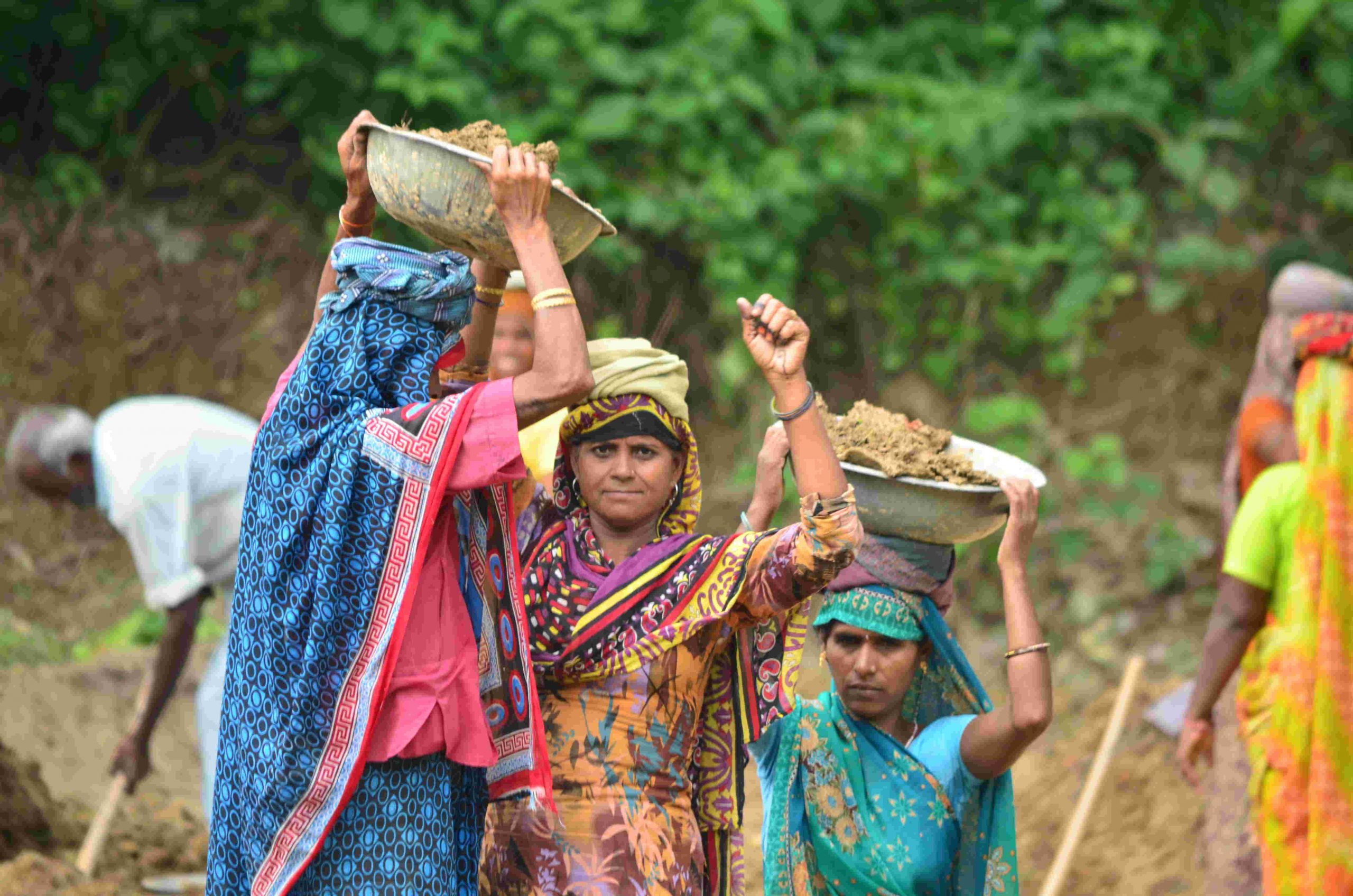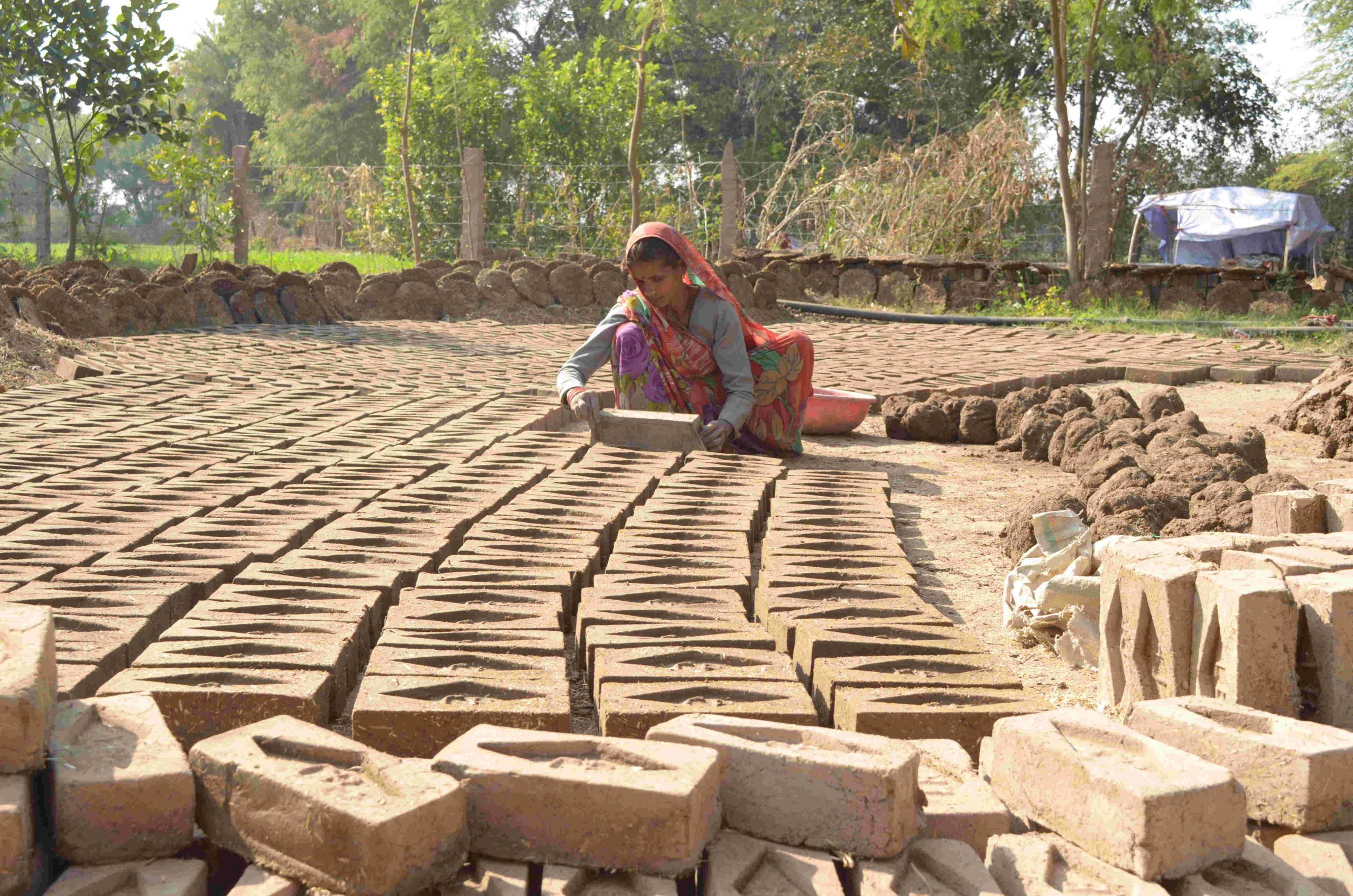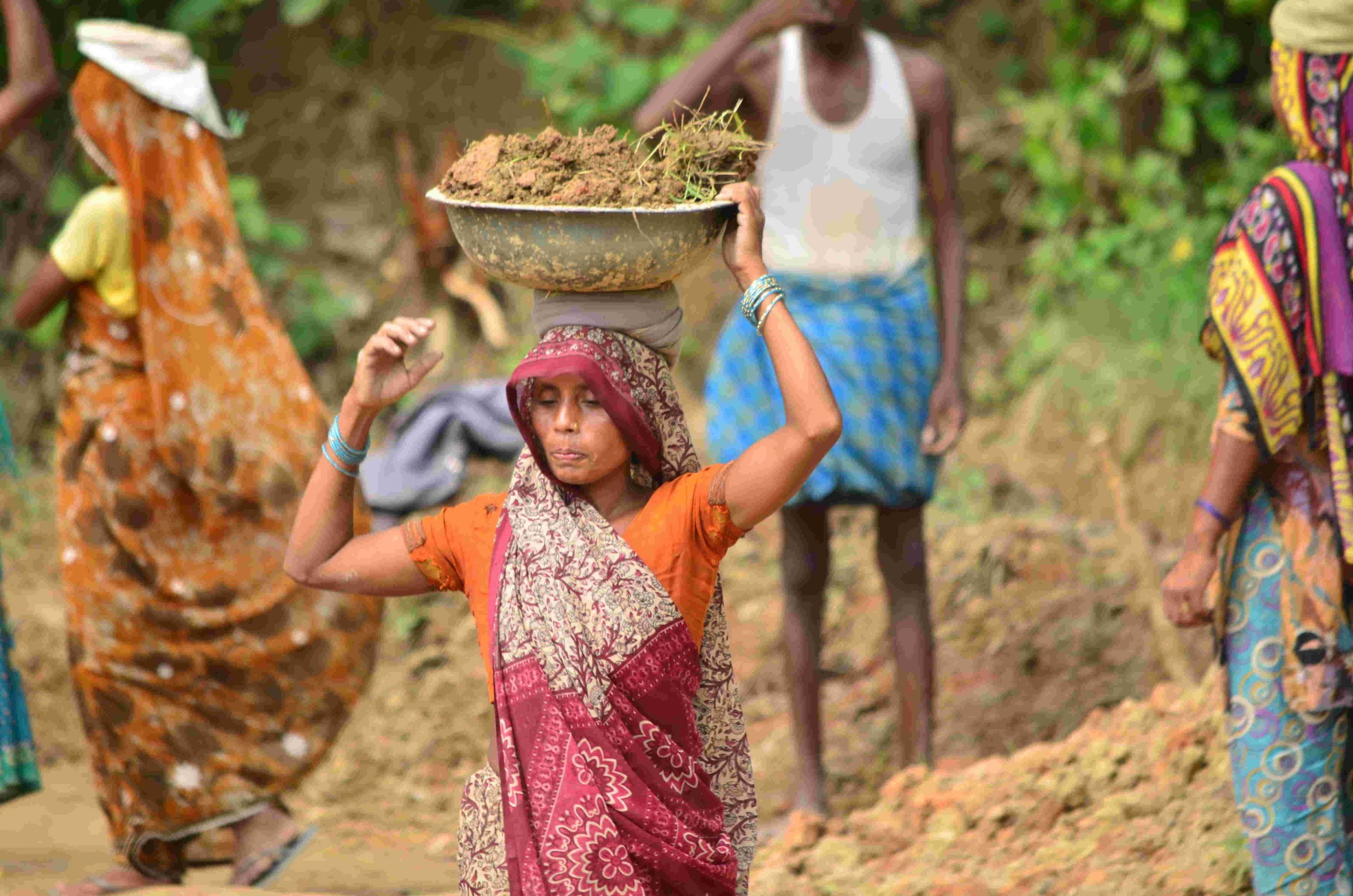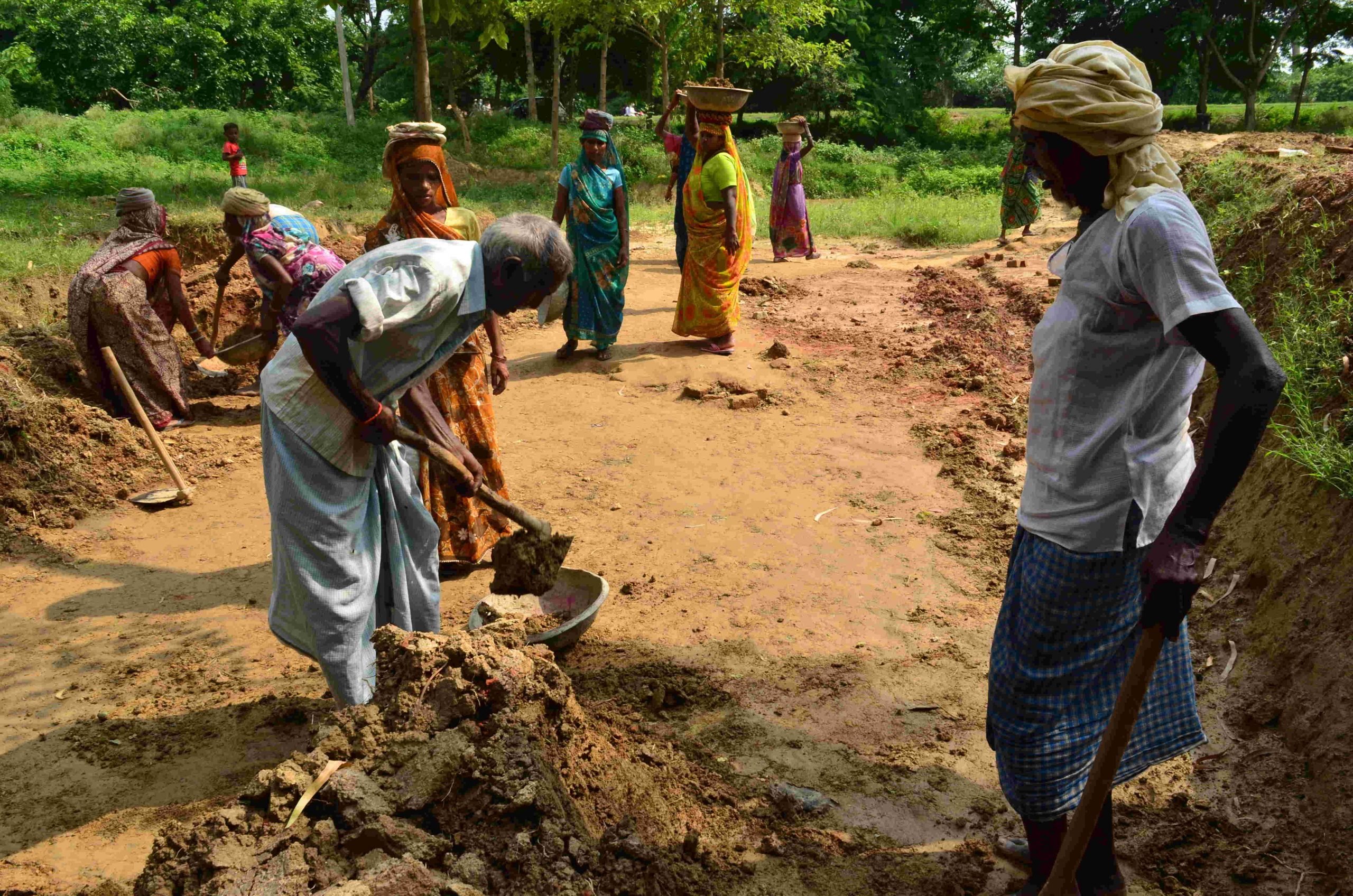The new labour law has come to force, but little has changed for the ground workers
The new labour law calls for the minimum daily wage of Rs 178 and minimum monthly wage of Rs 4,628. Several national labour associations and trade unions are opposing the new minimum wages


“As per the new labour law, if the government has fixed the minimum wage at Rs 178 for the workers in the country, the workers like us hauling cement sacks over our back throughout the day get Rs 250. It is not easy to run a household on Rs 250 a day — how would we manage with as little as Rs 178 for our daily wage?” asked Dalla Mina, a daily wage earner, who works in the Chowki Naka area of a small town, Salumber in Rajasthan’s Udaipur district.
The previous four Labour Acts have been replaced with the new labour law — ‘Wages Code Bill’ — but even after five months into its enforcement, the state of workers remains unchanged.
The new Labour Law calls for the minimum daily wage of Rs 178 and the minimum monthly wage of Rs 4,628. So, the several national labour associations and trade unions are opposing the new minimum wages and even carried out a nationwide protest on January 8 against the minimum wages and for their demands pertaining to the new labour law.
The law has provided for the common salary throughout the country, double wages for overtime and timely payments to the workers besides minimum wages. Rural Connection spoke to the workers and labour unions across various states in the country regarding the new labour law.
“My wife too is a labourer. She also hauls sacks and mixes mortar and only then we are able to make a combined income of Rs 350-400 and somehow manage our household. When we are in need of money, we pawn something in exchange. Our contractor gives no loan and makes excuses,” said Mina, the labourer.

‘Wages are never fixed’
Sheikh Malang is a worker associate for labourers in the unorganized sector of Taraibadi gram panchayat in Maharashtra’s Nanded district. He told Rural Connection, “Sometimes we get a worker for Rs 200 while sometimes we pay Rs 250 — the wages are never fixed. Wages are also based upon the work. For example, a mason shall get Rs 200 while a woman worker only Rs 150. Women always get lower wages than men. A worker must get such a wage so he is able to look after his family well.”
The country’s labour force has been demanding the government to implement the standard for minimum wages set during the 15th Indian Labour Meet. In it was agreed upon that a worker’s wage should be equal to food for three units included in his family.
Amarjeet Kaur, the chief secretary of All India Trade Union Congress (ATUC) informed Rural Connection: “All labour unions of the country had unanimously agreed to the standard set in this labours’ meet for the minimum wages. Even the government and Supreme Court had accepted these standards then why was the minimum wage fixed at Rs 178?”
‘Proposed minimum wages of Rs 375’
“The Modi government had formed an expert committee which proposed a minimum daily wage of Rs 375, but now the government is backing out,” said Amarjeet.
As per the labour ministry, there are 50 crore workers employed in the organized and unorganized sectors. At the same time, as per the Economic Survey 2019, 93% of the country’s labour force is employed in the unorganized sector. Out of this, 77.3% of the labourers fail to get timely wages and leave from work while 69% don’t get any benefit of social security.
The new labour law provides for double rate in wages for overtime, but workers do not get extra payment despite working for longer hours.
Suresh Kumar who works as a construction worker in the Meghraj village of Gujarat’s Aravalli district, said: “The government asks the worker to be paid twice for overtime. I get Rs 300 as daily wage. Sometimes I have to finish a particular task in a day so I work overtime but the person for whom I work simply provides me with tea or at the most, with some food.”

‘The basis for fixing minimum wages’
Dr G Sanjiva Reddy, the president of the Indian National Trade Union Congress informed Rural Connection, “We support the provisions of double rate for overtime and common wages for men and women made in the new labour law, but, at the same time, we oppose its minimum wage for a worker. On what basis has the government fixed the minimum wage at Rs 178? A worker must be guaranteed a minimum of Rs 350-400. For the sake of the workers of the country, the government must accede to our demands.”
Also, if we consider inflation, the rate of retail inflation had registered a sizeable hike in November 2019. The retail rate of inflation had jumped from October’s 4.62% to 5.54% in November recording a new high of the past three years.
This hike was brought about due to the rise in the prices for onion, tomato and other vegetables. As per the records, the inflation in vegetables prices had increased to reach 36%.
A young worker, Suraj Kumar, 23, working at a brass factory in Kazzakpura, Varanasi, said: “Workers like us get Rs 15 per brass basket and so end up earning a daily wage of Rs 130-150, which is not enough. My elder brother works in the city and only then we are able to run our household.”
‘Government needs to offer clarification’
Gautam Modi, chief secretary, New Trade Union Initiative, told Rural Connection over the phone: “The government needs to clarify on what basis has the minimum wage of Rs 178 been fixed. The minimum wage proposed by the pay commission is Rs 18,000 per month so the daily wage comes to Rs 600, so how did it arrive at the figure of Rs 178 for it is too low.”
“Our demand that the government calls for a detailed discussion on every single aspect of the labour law with the labour unions in view of today changed scenario so that the vast labour force of the country has an opportunity to live a better life,” said Gautam Modi.
The government has talked about providing equal wages to men and women but there is still a wide gap between the two.
Kuleshvar Karmali who works as a shuttering worker in Peterbar village of Jharkhand’s Bokaro district, said: “Previously, I used to do shuttering in the village and earn Rs 300 a day. I came to Ranchi because here I get Rs 400 for the same job and manage to run the house.” She added: “Women stay back in village earning no more than Rs 100-150 a day during season by working on fields to meet the daily expense.”

Not even 72% receive minimum wages
It was revealed in the recent survey of labour force undertaken by the labour ministry that 45% workers in India take home a monthly income of less than Rs 10,000 while 32% women receive a monthly income of even less than Rs 5,000. The survey sample population constituted 2.46 lakh rural and 1.86 lakh urban workers. The study also revealed that not even 72% workers get the 7th pay commission’s recommended minimum wage of Rs 18,000.
Govind Gadekar, worker associate of Loha Taluka in Maharashtra’s Nanded district, said: “Most of the women in my taluka are engaged in MGNREGA (Mahatma Gandhi National Rural Employment Guarantee Act) because they at least get Rs 206 there. Amongst most of the construction workers, men are paid Rs 300 while women are paid only Rs 150, so this is why women prefer to work with MGNREGA.”
The state of rural workers is not any better. People from Uttarakhand and Bihar move to cities looking for jobs and farmers in rural areas do not get workers to help with farming.
Farmer Dipendra Dubey of Natkariyaganj in Bihar’s West Champaran said: “Till two years ago, agricultural labourers could be hired for Rs 150 each, but due to their migration, the prevailing rate is of Rs 300 per day. Even women worker wage is between Rs 250 and Rs 300 because of the workers’ shortage in the area.”
Dipendra said: “It is wrong to fix the minimum wage at Rs 178 in today’s economic state where prices are skyrocketing. Today we can’t function without farmhands so just the way we provide afternoon meal to the workers so that our work runs smoothly and timely; other workers must also be provided with adequate remuneration.”
At the same time, agricultural labourer Antim Malviya from Kishenpur village in Madhya Pradesh’s Betul district said: “My brother Narayan and I work on fields and are able to earn only Rs 400 per day. For the same work, women manage to get only Rs 100-180. But it is simply not enough to feed our families in current times.”

